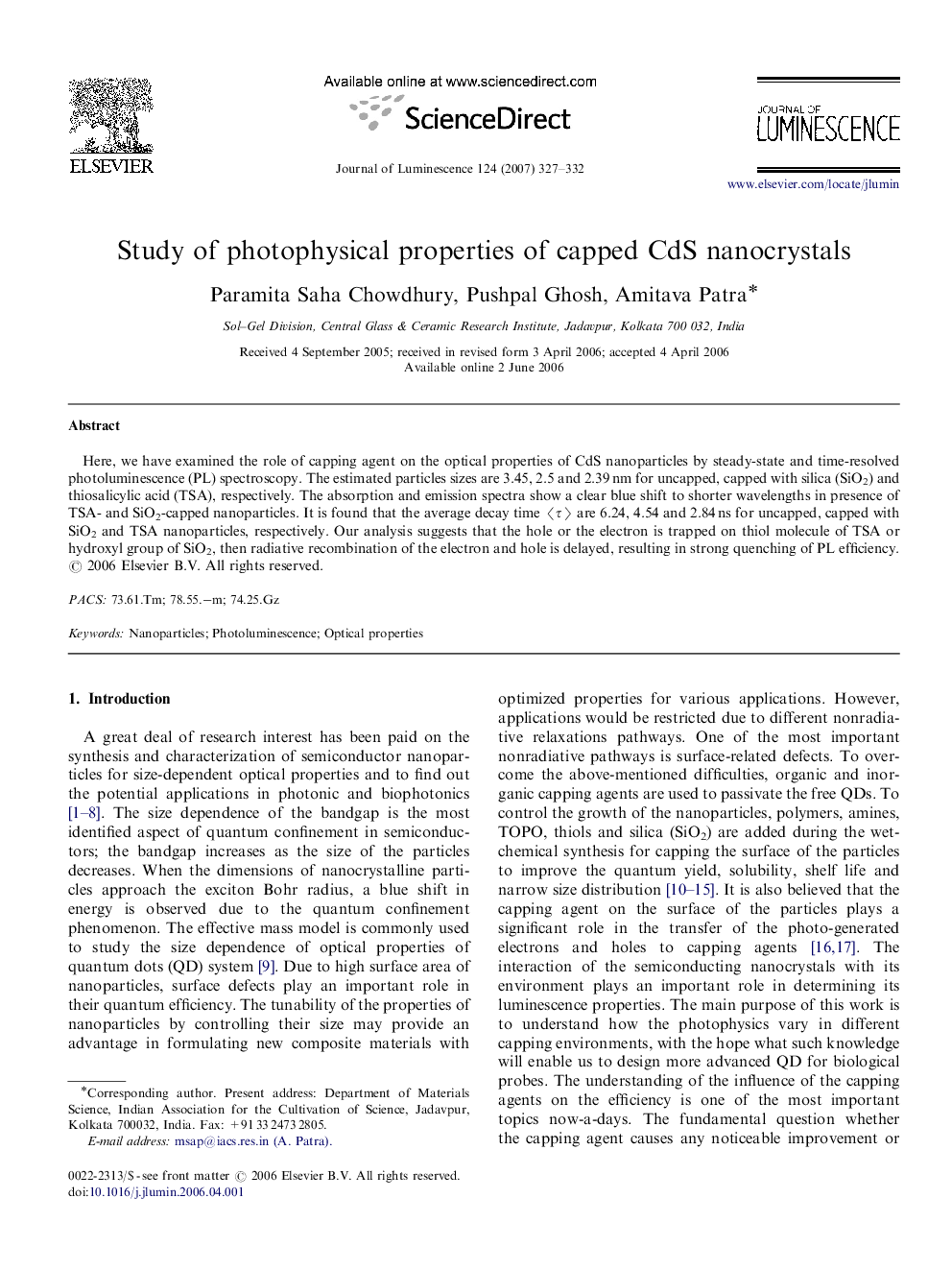| Article ID | Journal | Published Year | Pages | File Type |
|---|---|---|---|---|
| 5404255 | Journal of Luminescence | 2007 | 6 Pages |
Abstract
Here, we have examined the role of capping agent on the optical properties of CdS nanoparticles by steady-state and time-resolved photoluminescence (PL) spectroscopy. The estimated particles sizes are 3.45, 2.5 and 2.39 nm for uncapped, capped with silica (SiO2) and thiosalicylic acid (TSA), respectively. The absorption and emission spectra show a clear blue shift to shorter wavelengths in presence of TSA- and SiO2-capped nanoparticles. It is found that the average decay time ãÏã are 6.24, 4.54 and 2.84 ns for uncapped, capped with SiO2 and TSA nanoparticles, respectively. Our analysis suggests that the hole or the electron is trapped on thiol molecule of TSA or hydroxyl group of SiO2, then radiative recombination of the electron and hole is delayed, resulting in strong quenching of PL efficiency.
Related Topics
Physical Sciences and Engineering
Chemistry
Physical and Theoretical Chemistry
Authors
Paramita Saha Chowdhury, Pushpal Ghosh, Amitava Patra,
